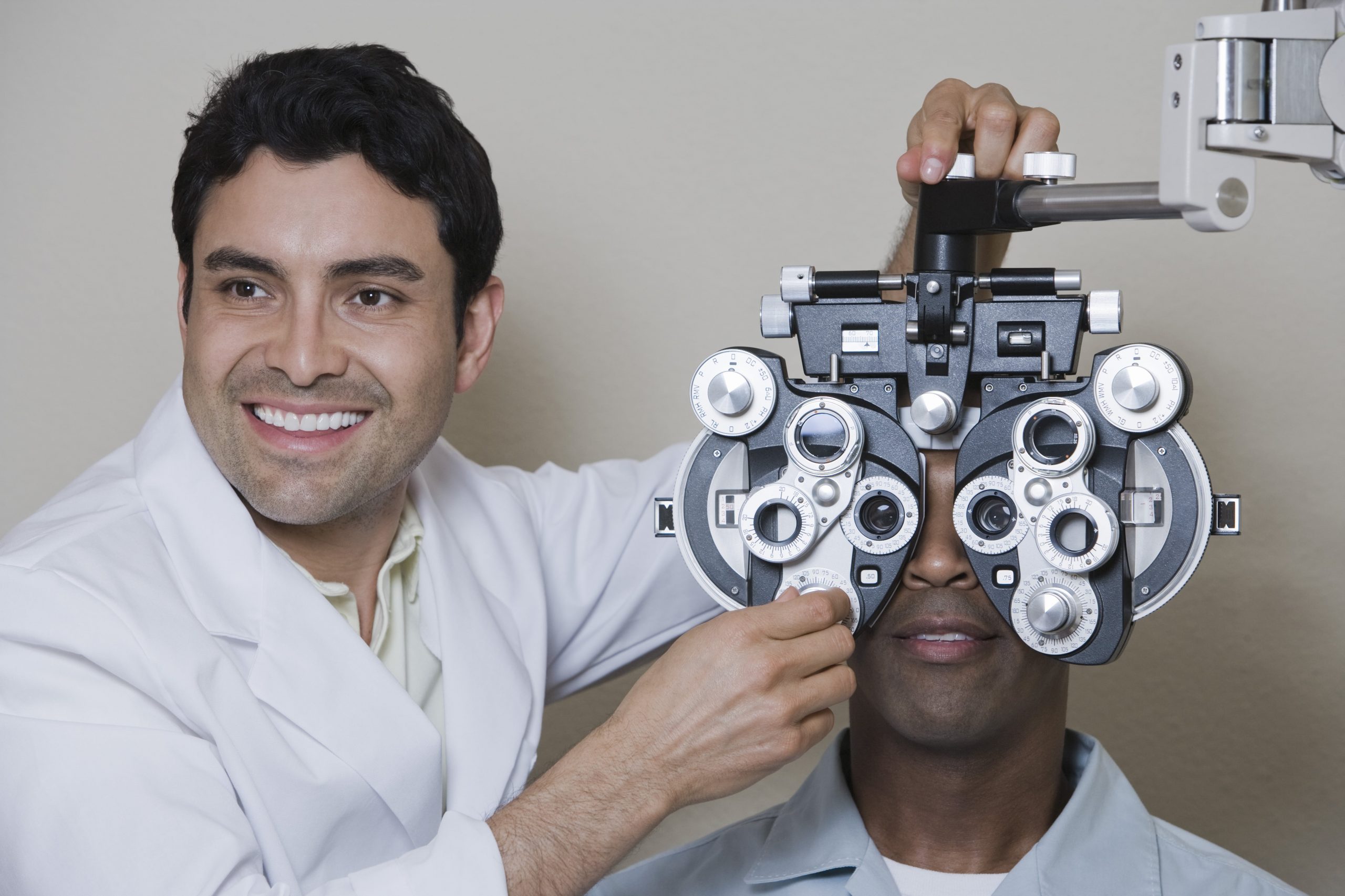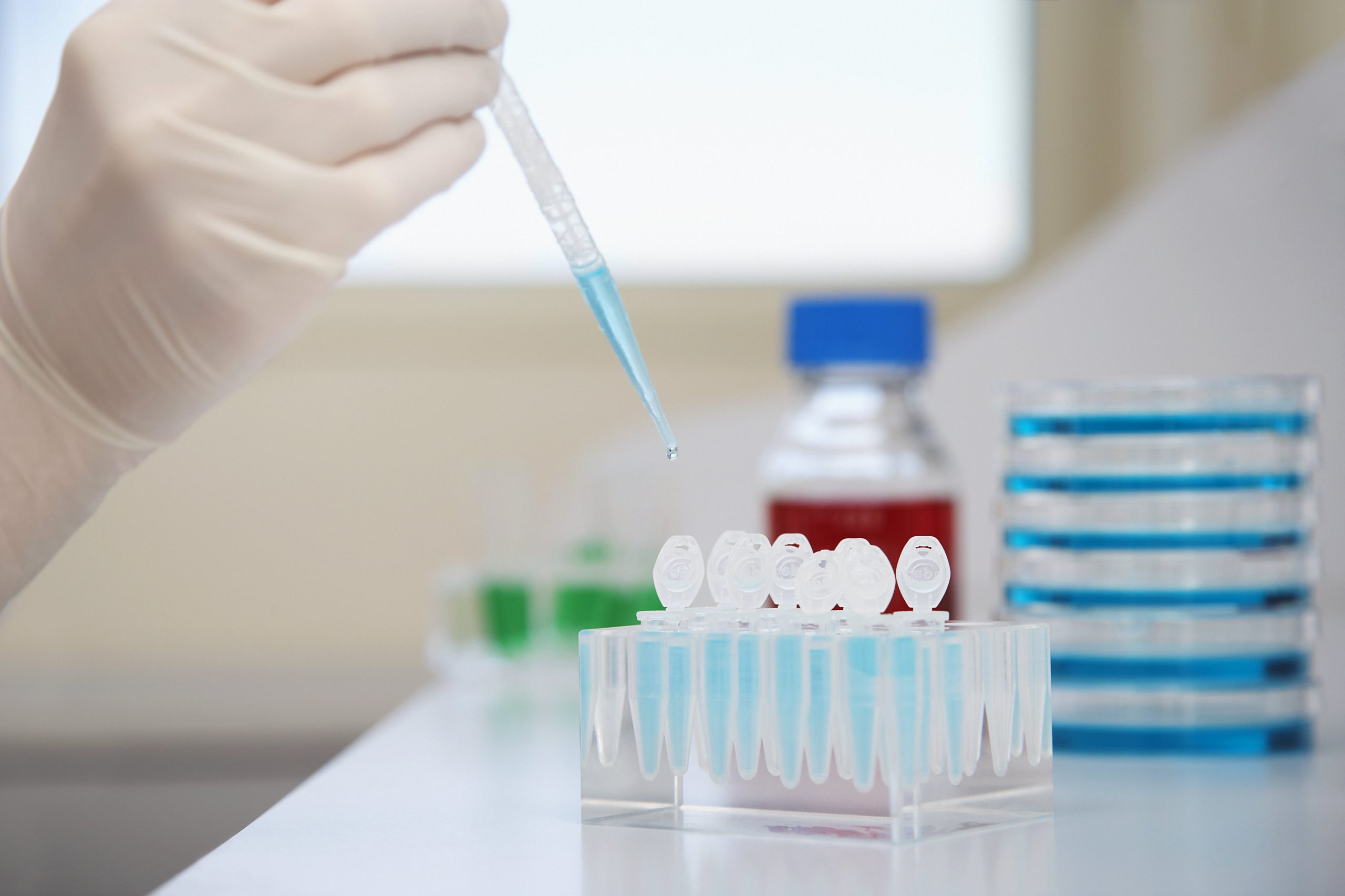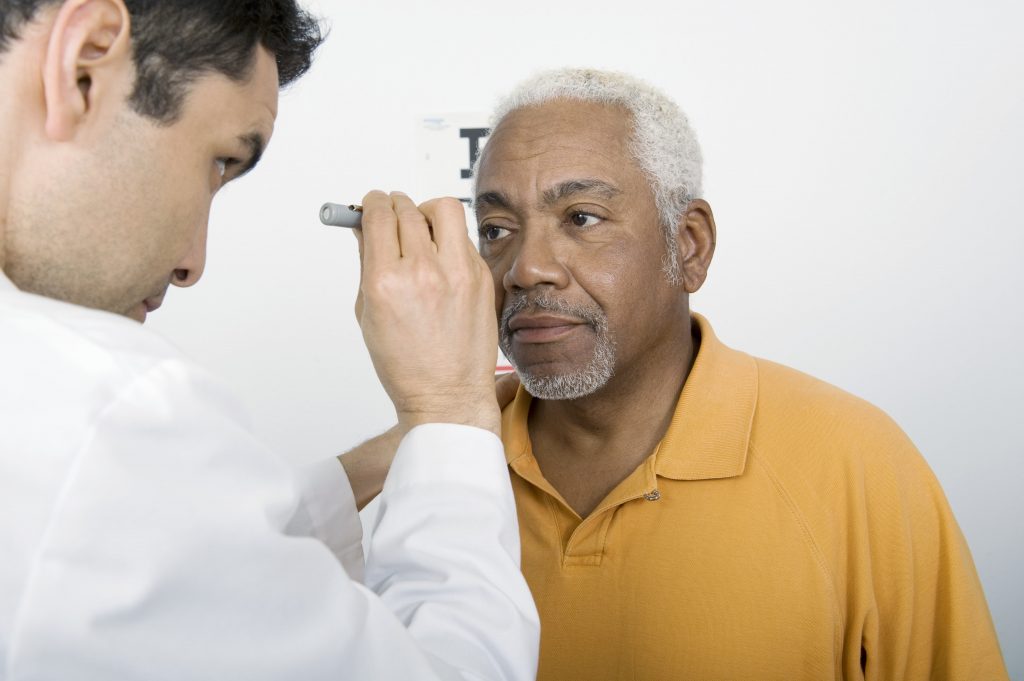What is CBD?
CBD is an abbreviation for cannabidiol. It is the second most common active component in cannabis (marijuana). While CBD is an important component of medicinal marijuana, it is obtained straight from the hemp plant, a relative of the marijuana species.
Cannabidiol (CBD) is a molecule found in the Cannabis sativa plant, commonly known as hemp or cannabis.
What is Glaucoma?
Glaucoma is a set of eye diseases that cause damage to the optic nerve, which is essential for healthy vision. Unusually high pressure in your eye is often the source of this injury.
For individuals over the age of 60, glaucoma is one of the main causes of blindness. It may happen at any age, although it is more prevalent in elderly people.
Many types of glaucoma have no symptoms. Because the impact is so gradual, you may not detect a change in vision until the disease has progressed to an advanced level.
Because glaucoma vision loss cannot be restored, it is critical to have frequent eye examinations that include measures of your eye pressure so that a diagnosis can be established, and proper treatment may be provided. Vision loss may be delayed or avoided if glaucoma is detected early. If you have the disease, you will almost certainly need therapy for the rest of your life.

What causes Glaucoma to occur?
Glaucoma may develop without a known cause, although it is influenced by a variety of variables. Intraocular eye pressure is the most essential. Your eyes generate a fluid known as aqueous humor, which feeds them. This liquid travels to the front of the eye through the pupil. The fluid exits the eye via a drainage channel situated between the iris and cornea in a healthy eye.
The drainage tubes get blocked with tiny deposits as a result of glaucoma. Because the fluid has nowhere to go, it accumulates in the eye. This extra fluid exerts strain on the eye. This increased eye pressure may eventually damage the optic nerve, resulting in glaucoma.
Is it safe to use CBD for Glaucoma?
A significant number of studies have demonstrated that cannabis in general – including THC-rich strains – is a feasible and very effective therapy. In 1971 research, Hepler and Frank found that cannabis reduced intraocular pressure (IOP) by up to 30%.
The issue with cannabis is that you have to take it every few hours since the benefits don’t stay long.
In other words, you must be high throughout most of the day. While this may seem to be a nice way of life for some, it is not feasible for the majority of people. Furthermore, although cannabis has a low addiction rate, consuming it six or more times per day significantly increases the chance of establishing a dependency on the plant.
This is where CBD comes into play. Cannabidiol is a non-intoxicating cannabinoid found in marijuana, and some study suggests that it may be equally as effective as THC and other psychoactive chemicals in the treatment of glaucoma.
While CBD is generally well accepted, it may produce adverse effects such as dry mouth, diarrhea, decreased appetite, sleepiness, and weariness. CBD may potentially interact with other medicines, such as blood thinners. Another source of worry is the lack of consistency in the quality and dose of CBD in products.
What are the health benefits of CBD?
Anxiety alleviation
CBD may be able to assist you in dealing with anxiety. Researchers believe it may alter how your brain’s receptors react to serotonin, a neurotransmitter related to mental wellness. Receptors are small proteins linked to your cells that receive chemical signals and assist your cells in responding to various stimuli.
Anti-seizure medication
CBD has previously been mentioned as a potential therapy for epilepsy. The study is still in its early stages. Researchers are investigating how much CBD can decrease the frequency of seizures in individuals with epilepsy and how safe it is. According to the American Epilepsy Society, cannabidiol research provides promise for seizure disorders, and studies are presently being performed to further understand safe usage.
Neuroprotective properties
Researchers are studying a brain receptor to understand more about how CBD may assist individuals with neurodegenerative illnesses, which are diseases that cause the brain and nerves to degrade over time. CB1 is the name of this receptor.
Pain alleviation
CBD oil’s actions on brain receptors may also help you manage pain. Cannabis has been found in studies to have some advantages when consumed following chemotherapy treatments. Other pre-clinical research funded by the National Institutes of Health is investigating the function of cannabis in alleviating symptoms produced by:
- Arthritis
- Chronic pain
- MS discomfort
- Muscular pain
- Spinal cord injury
Acne treatment
CBD’s actions on immune system receptors may aid in the reduction of general inflammation in the body. As a result, CBD oil may be beneficial for acne treatment. Human research published in the Journal of Clinical Investigation discovered that the oil inhibited sebaceous gland activity. These glands are in charge of generating sebum, a natural oily material that moisturizes the skin. Too much sebum, on the other hand, may cause acne.
Cancer therapy
Some study has looked at the function of CBD in inhibiting cancer cell development, although the field is still in its early stages. According to the National Cancer Institute (NCI), CBD may help relieve cancer symptoms and cancer therapy adverse effects. The NCI, on the other hand, does not completely support any type of cannabis as a cancer therapy. CBD’s capacity to reduce inflammation and alter how cells reproduce is a potential activity for cancer therapy. CBD inhibits the capacity of some kinds of tumor cells to proliferate.
Is CBD effective in Treating Glaucoma?
Remember that there is no permanent treatment for glaucoma. In reality, research on the benefits of CBD Hemp Oil on glaucoma is still in its early stages. The bulk of research, however, indicated that cannabis or stains with high THC concentration may be a feasible and effective therapy for glaucoma. Cannabis lowers intraocular pressure, which is the main cause of glaucoma.
That being said, that means you’ll be high nearly all of the time. While this may be exciting for some, it may not be for others. This is where CBD (cannabidiol) enters the picture. CBD is a non-psychoactive chemical found in marijuana, and some research suggests that it may be helpful in treating glaucoma by using the endocannabinoid system (ECS).

What is the chemistry of CBD?
CBD is a 21-carbon terpene phenolic molecule that is generated via decarboxylation of a cannabidiolic acid precursor, although it may also be synthesized. Under experimental circumstances, CBD may be converted to tetrahydrocannabinol (THC); however, this does not seem to have any substantial impact on people receiving CBD therapy.
Are there any negative side effects of using CBD?
While CBD is generally well accepted, it may produce adverse effects such as dry mouth, diarrhea, decreased appetite, sleepiness, and weariness. CBD may potentially interact with other medicines, such as blood thinners.
Another source of worry is the lack of consistency in the quality and dose of CBD in products.
Do physicians use CBD to cure Glaucoma?
An association of eye physicians advises individuals not to attempt CBD as a treatment for glaucoma, a condition that is more common among older Americans.
“Do not utilize CBD as a ‘natural’ glaucoma treatment,” the American Academy of Ophthalmology said in a news release timed to coincide with Glaucoma Awareness Month.
The researchers from Indiana University referenced a study published in the journal Investigative Ophthalmology & Visual Science in December. The researchers discovered that rats administered CBD extract eye drops had an 18% rise in intraocular pressure (a symptom of glaucoma) at least four hours after administration.
The study, along with other human-subject research, “raises a legitimate concern about whether CBD may raise eye pressure and thus serve as a potential risk factor for glaucoma,” according to lead researcher Alex Straiker, an associate scientist in the university’s Department of Psychological and Brain Sciences.

Does CBD require a prescription?
With all of the talk about CBD oil in the media these days, you may be wondering whether you need a prescription to purchase CBD oil. CBD oil is undoubtedly becoming a popular subject, with major news and media sources covering this promising therapeutic option for a broad range of health problems and complaints. In this section, we will address some key questions regarding the many kinds of CBD oils available, the various ways they may be used, and how to select the best product for your particular requirements.
Which type of CBD is the most effective for Glaucoma?
CBD is classified into three types:
- CBD isolate is a pure version of CBD that does not include any other cannabis plant components.
- Full-spectrum CBD includes all cannabis components, such as terpenes, flavonoids, and cannabinoids (including up to 0.3 percent THC).
- Except for THC, broad-spectrum CBD includes all cannabis components.
If you want to get a health boost from CBD but avoid the psychoactive effects of THC, broad-spectrum is definitely your best option. If you don’t mind THC and want to get the most out of your CBD product, full-spectrum is definitely the way to go.












